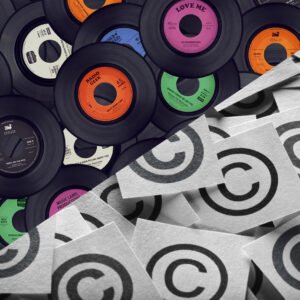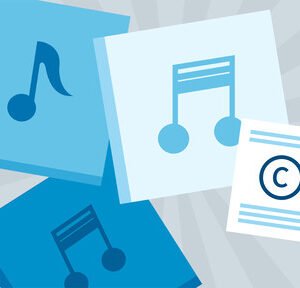In this comprehensive guide, we'll explore the intricacies of copyright ownership in the world of music, shedding light on the various stakeholders and how to protect your rights.
Copyright ownership is a fundamental aspect of the music industry, determining who has the right to use, distribute, and profit from a piece of music. Navigating the complexities of copyright ownership is essential for musicians, songwriters, and all those involved in the creative process.
Understanding Copyright Basics
Before delving into the nuances of copyright ownership, it's important to grasp the basics of copyright law:
- Copyright Grants Exclusive Rights: Copyright provides creators with exclusive rights to their original works, including music compositions and sound recordings. These rights encompass the ability to reproduce, distribute, perform, and adapt the work.
- Ownership Upon Creation: Copyright is automatically granted to the creator the moment an original work is fixed in a tangible medium, such as writing down lyrics, recording a melody, or producing a song.
- Duration: Copyright protection typically lasts for the creator's lifetime plus an additional 50 to 70 years. After this period, the work enters the public domain, becoming free for anyone to use.
- Transfer and Licensing: Copyright owners can transfer or license their rights to others, allowing for collaborations, licensing deals, and more.
Key Stakeholders in Music Copyright Ownership
In the world of music, ownership can be distributed among multiple stakeholders, each with distinct rights and interests. Understanding the various aspects of music ownership is essential for musicians, songwriters, and all those involved in the creative process. Let's explore the key players and factors that determine who owns the rights to your music.
Here are the primary players:
1. Songwriters and Composers:
Songwriters and composers are the creative minds behind the lyrics and melodies that make up a musical composition.
They are the initial owners of the copyright to the composition itself. This copyright covers the lyrics and the musical arrangement, including the melody, chords, and structure of the song.
Songwriters and composers often sign publishing deals with music publishing companies.
These companies help administer, promote, and license the compositions. In many cases, the publishing rights may be shared between the songwriter and the publisher, with the songwriter retaining a portion of the royalties.
2. Performing Artists:
Performing artists, including vocalists and instrumentalists, contribute to the sound recordings. They may hold copyright interests in their specific performances. The rights to the sound recording are typically owned by the performer or, more commonly, by the record label they are signed to.
3. Music Producers:
Music producers often play a substantial role in the creative process, contributing to the sound, arrangement, and overall production of a song. Depending on agreements, producers may have rights to the sound recording, the composition, or both.
4. Record Labels:
Record labels invest in artists and their projects, providing resources for recording, production, marketing, and distribution. In return, they often own the rights to the sound recordings and have a stake in the compositions.
These rights are often detailed in recording contracts.
5. Music Publishing Companies:
Music publishing companies, or music publishers, specialize in the administration and promotion of musical compositions. They help songwriters and composers earn royalties from the use of their compositions.
Music publishers often have a share of the publishing rights.
6. Collaborators and Co-Writers:
When songs are co-written or created collaboratively, the ownership rights may be shared among the collaborators. This division of ownership should be documented in a clear agreement or split sheet that outlines the percentage of ownership each contributor holds.
7. Licensing and Rights Organizations:
Performance rights organizations (PROs) like MCSN, BMI, and PRS are responsible for collecting and distributing royalties for the public performance of musical compositions.
These organizations play a crucial role in ensuring that songwriters and composers receive compensation when their music is played on the radio, in live performances, or in various media.
8. Recording Studios and Engineers:
Studios and engineers may have contractual rights to sound recordings they help create. However, these rights are often subordinate to those of the performing artist, producer, or record label.
Determining Music Copyright Ownership
Copyright ownership is often determined by a combination of factors:
- Written Agreements: Collaboration agreements, work-for-hire contracts, and other written agreements play a significant role in defining copyright ownership. These documents should clearly specify how rights are divided among contributors.
- Work for Hire: In some cases, creators may be hired to produce music as part of their employment. In such instances, the employer or commissioning party typically owns the copyright.
- Licensing Agreements: Licensing agreements specify how and where a work can be used. For example, artists may license their music for use in films or commercials while retaining ownership.
- Credit and Attribution: Properly crediting contributors in liner notes, metadata, and with PROs is essential to ensure that copyright owners are recognized and receive royalties.
- Record Labels and Publishing Companies: These entities often hold significant rights in sound recordings and musical compositions, particularly if they have financed or supported the creation of the music.
In conclusion, the question of who owns the rights to your music is influenced by various factors, including your role in the creative process, contractual agreements, and collaboration with others.
Musicians, songwriters, and producers should be proactive in documenting their contributions, seeking legal advice when necessary, and ensuring that their creative works are properly recognized and protected.
Understanding the intricacies of music ownership is essential for navigating the complex landscape of the music industry and ensuring that artists receive the credit and compensation they deserve.
Need Assistance with Music Copyright Registration? We Can Help.
While it's possible to copyright music on your own, it can be a complicated process when it's challenging to understand copyright laws. Let 1710Media help you sort through the red tape and handle all your music copyright needs.
Register and protect music from theft and plagiarism
1710Media provides the fastest and most affordable way for you to protect your copyrights. Our Music Copyright Service includes the preparation, review, e-filing with the Nigerian Copyright Commission (NCC), and handling of correspondence until you receive your certificates of registration.
- We'll file your application with the Nigerian Copyright Commission (NCC).
- Our service includes the preparation, review, e-filing, and delivery of your certificate of registration.
- Receive an Official Copyright Certificate. Valid for your lifetime plus a minimum of 50 years after.
- Register your songs, albums, compositions, beats, lyrics, music videos, artworks, and other musical projects.
- Enjoy protection in Nigeria and 178+ other territories.
Get Started Now!





